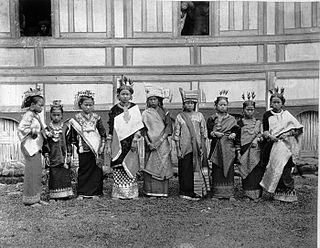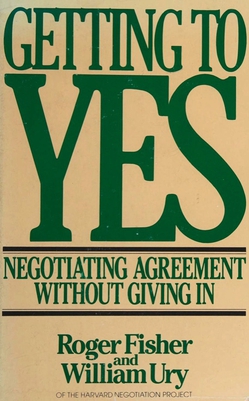 W
WAdat is the generic term derived from Arabic language for describing a variety of local customary practices and tradition as observed by Muslim communities in North Caucasus, Central Asia and Southeast Asia. Despite its Arabic origin, the term adat resonates deeply throughout the Maritime Southeast Asia, where due to colonial influence, its usage has been systematically institutionalised into various non-Muslim communities. Within the region, the term refers, in a broader sense, to the customary norms, rules, interdictions, and injunctions that guide individual's conduct as a member of the community and the sanctions and forms of address by which these norms and rules, are upheld. Adat also include the set of local and traditional laws and dispute resolution systems by which society was regulated.
 W
WAl-Araqeeb is an unrecognized village of the Al-Turi Arab Bedouin tribe, five miles (8 km) north of Beersheba demolished and rebuilt over 179 times.
 W
WThe Australian Financial Complaints Authority or AFCA is an external dispute resolution (EDR) scheme for consumers who are unable to resolve complaints with member financial services organisations. It is operated as a not-for-profit company limited by guarantee was authorised by the then responsible minister, Minister for Revenue and Financial Services, Hon Kelly O'Dwyer MP in accordance with the Corporations Act 2001 (Cth).
 W
WThe California Academy of Distinguished Neutrals is the Californian chapter of the National Academy of Distinguished Neutrals.
 W
WThe conflict triangle or ABC triangle is a model exploring the impact and causes of conflict.
 W
WThe Financial Ombudsman Service (FOS) was a member-funded Australian ombudsman service that provided external dispute resolution for consumers who were unable to resolve complaints with member financial services organisations.
 W
WThe Forgiveness Project is a UK-based charity that uses real stories of victims and perpetrators of crime and violence to help people explore ideas around forgiveness and alternatives to revenge. With no political or religious affiliations, The Forgiveness Project's independent and inclusive approach ensures its core message – that everyone has the potential to change their perspective and break the cycle of vengeance – resonates across all cultures.
 W
WGetting to Yes: Negotiating Agreement Without Giving In is a best-selling 1981 non-fiction book by Roger Fisher and William L. Ury. Subsequent editions in 1991 and 2011 added Bruce Patton as co-author. All of the authors were members of the Harvard Negotiation Project. The book made appearances for years on the Business Week bestseller list. The book suggests a method called principled negotiation or "negotiation of merits".
 W
WHoʻoponopono is a Hawaiian practice of reconciliation and forgiveness. The Hawaiian word translates into English simply as correction, with the synonyms manage or supervise, and the antonym careless. Similar forgiveness practices are performed on islands throughout the South Pacific, including Hawaii, Samoa, Tahiti and New Zealand. Traditional Hoʻoponopono is practiced by Indigenous Hawaiian healers, often within the extended family by a family member. There is also a New Age practice that goes by the same name.
 W
WJAMS, formerly known as Judicial Arbitration and Mediation Services, Inc. is a United States–based for-profit organization of alternative dispute resolution (ADR) services, including mediation and arbitration. H. Warren Knight, a former California Superior Court judge, founded JAMS in 1979 in Santa Ana, California. A 1994 merger with Endispute of Washington, D.C. made JAMS into the largest private arbitration and mediation service in the country. It is one of the major arbitration administration organizations in the United States. As of 2017, JAMS has 27 resolution centers, including its headquarters in Irvine, California and centers in Toronto and London. JAMS specializes in mediating and arbitrating complex, multi-party, business/commercial cases.
 W
WA jirga is a traditional assembly of leaders that supposed to make decisions by consensus and according to the teachings of Pashtunwali. A tribal cultural system that predates modern-day written or fixed-laws and is conducted to settle disputes among the Pashtun people but to a lesser extent among other nearby groups that have been influenced by Pashtuns in Afghanistan and Pakistan. Its primary purpose has been to prevent tribal war. Most jirgas are conducted in Afghanistan but also among the Pashtun tribes in neighboring Pakistan, especially in Khyber Pakhtunkhwa (KPK). In 2017, the Pakistani government passed The Alternative Dispute Resolution Act, 2017 of Pakistan aiming to integrate jirgas into the formal justice system. In a January 2019 petition from National Commission on the Status of Women (NCSW), Supreme Court of Pakistan restrained jirgas up to permissible limits of the law to the extent of acting as arbitration, mediation, negotiation or reconciliation forums between parties involved in a civil dispute, amidst continued reports of widespread flouting of constitutional norms and human rights.
 W
WNegotiation is a dialogue between two or more people or parties intended to reach a beneficial outcome over one or more issues where a conflict exists with respect to at least one of these issues. Negotiation is an interaction and process between entities who compromise to agree on matters of mutual interest, while optimizing their individual utilities. This beneficial outcome can be for all of the parties involved, or just for one or some of them. Negotiators need to understand the negotiation process and other negotiators to increase their chances to close deals, avoid conflicts, establishing relationship with other parties and gain profit.
 W
WAn organizational ombudsman is a designated neutral or impartial dispute resolution practitioner whose major function is to provide independent, impartial, confidential and informal assistance to managers and employees, clients and/or other stakeholders of a corporation, university, non-governmental organization, governmental agency or other entity. As an independent and neutral employee, the organizational ombudsman ideally should have no other role or duties. This is in order to maintain independence and neutrality, and to prevent real or perceived conflicts of interest.
 W
WParticipatory justice, broadly speaking, refers to the direct participation of those affected most by a particular decision, in the decision-making process itself: this could refer to decisions made in a court of law or by policymakers. Popular participation has been called "the ethical seal of a democratic society" by Friedhelm Hengsbach, a professor of Christian Social Science and Economic and Social Ethics at the Philosophical-Theological College Sankt Georgen in Frankfurt and "the politics of the future" by Gene Stephens, professor of criminology at the University of South Carolina. It is about people and relationships.
 W
WMary Elizabeth Anderson Pawlenty is a former American state court judge who served on Minnesota's First Judicial District from 1994 to 2007. The wife of Governor Tim Pawlenty, she was First Lady of Minnesota from 2003 to 2011. She previously worked as a private-practice attorney and in 2009 became director at a medical nonprofit. She has been a mediator with Gilbert Mediation since 2007.
 W
WReligious violence is a term that covers phenomena where religion is either the subject or the object of violent behavior. Religious violence is violence that is motivated by, or in reaction to, religious precepts, texts, or the doctrines of a target or an attacker. It includes violence against religious institutions, people, objects, or events. Religious violence does not exclusively refer to acts which are committed by religious groups, instead, includes acts which are committed against religious groups.
 W
WGeorge W. Taylor was a notable professor of industrial relations at the Wharton School at the University of Pennsylvania, and is credited with founding the academic field of study known as industrial relations. He served in several capacities in the federal government, most notably as a mediator and arbitrator. During his career, Taylor settled more than 2,000 strikes.
 W
WViolence is "the use of physical force so as to injure, abuse, damage, or destroy". Other definitions are also used, such as the World Health Organization's definition of violence as "the intentional use of physical force or power, threatened or actual, against oneself, another person, or against a group or community, which either results in or has a high likelihood of resulting in injury, death, psychological harm, maldevelopment, or deprivation."
 W
WWar is an intense armed conflict between states, governments, societies, or paramilitary groups such as mercenaries, insurgents and militias. It is generally characterized by extreme violence, aggression, destruction, and mortality, using regular or irregular military forces. Warfare refers to the common activities and characteristics of types of war, or of wars in general. Total war is warfare that is not restricted to purely legitimate military targets, and can result in massive civilian or other non-combatant suffering and casualties.
 W
WThe term zone of possible agreement (ZOPA), also known as zone of potential agreement or bargaining range, describes the range of options available to two parties involved in sales and negotiation, where the respective minimum targets of the parties overlap. Where no such overlap is given, in other words where there is no rational agreement possibility, the inverse notion of NOPA applies. Where there is a ZOPA, an agreement within the zone is rational for both sides. Outside the zone no amount of negotiation should yield an agreement.